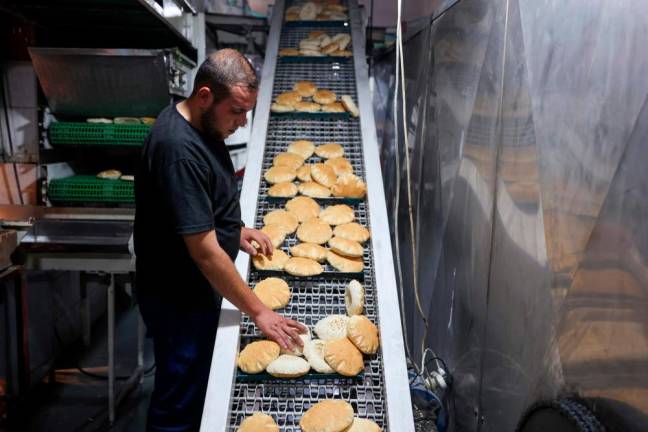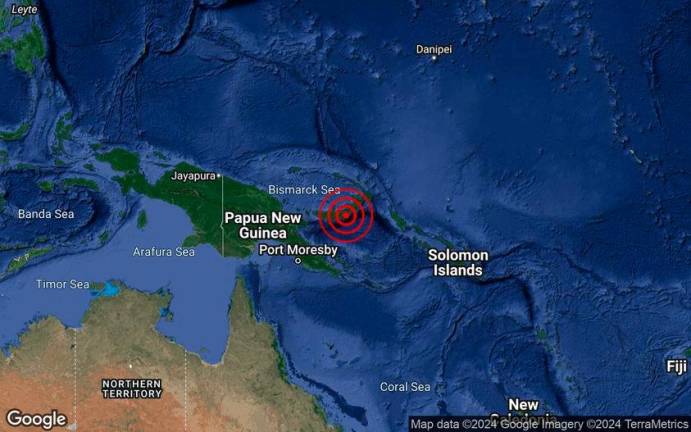FAITHFUL theSun readers must rally to the call and fight the pandemic of corruption with the vaccine of integrity. Telling it as it is, this newspaper has spoken the truth: Integrity is the only workable vaccine against this scourge.
In a front-page news article on March 24, the unmarshalled credible opinions from experts in the field that corruption has now permeated every level of society, including the civil service and police force, will cause irreparable damage to Malaysia.
In the Connecting Faiths opinion piece on Adam and Eve two weeks ago, we highlighted the final destructive effects of corruption.
“God saw how corrupt the earth had become, for all the people on earth had corrupted their ways. So God said to Noah, ‘I am going to put an end to all people, for the earth is filled with violence because of them’.”
Corruption induces violence and brings humanity to a destructive end. In the war against corruption, the government at times shoots itself in the foot.
The RM10,000 fine on individuals who committed small Covid-19 standard operating procedures violations was a bad mistake. It sent out the wrong message: To get out of trouble, you need big money.
So you have to be super-rich to pay your way through life. How do you acquire super-wealth? Fortunately, the fine was later reduced to RM1,500 for minor offences. But instead of focusing on money to solve all problems, a better remedy is sentencing minor violators to do community work.
The nation is rotting with litter, including face masks thrown on walkways, garbage strewn around “Keep Your City Clean” billboards, clogged drains where rain water spills onto the roads, and discarded plastic bags that will eventually wash out to sea and be eaten by sea creatures which die of it. Of course, our town rivers smell like dead fish.
For minor infringements, sentence violators to do 30 hours of heavy community work, spread over a period of no more than three months. Not only will the nation begin to look sprightly clean, the violators will learn to improve their lifestyle habits.
We also need outstanding role models to provide inspiration for clean living. One such man was Jesus Christ, a leading Rasuah Buster, whose martyrdom the Christian community will be commemorating on April 2, which is on Good Friday.
To prepare for his mission, Jesus did a 40-day nonstop fast in the desert. He was then confronted by the devil who placed three temptations before him.
The first temptation, since he was extremely hungry, was to turn the desert stones into loaves of bread. If you are hungry and without a job, getting the means to turn stones into bread is very tempting. Jesus tells the devil: “It is written, ‘Man shall not live by bread alone, but by every word that proceeds from the mouth of God’.” The point is: Don’t sacrifice your integrity because you are hungry for money.
The second temptation was for Jesus to jump down from the roof of the temple in Jerusalem and have faith that angels will save him. Jesus retorted: “It is written again, ‘You shall not tempt the Lord your God’.” The message is this: If you break the laws (the law of gravity is used as proxy for any law, including the law against corruption), don’t have this expectation that God will save you just because you have faith. Corrupt people repeatedly do wrong on the assumption that as faithful believers, they can still go to heaven and be welcomed by God.
The third temptation crowns it all. Jesus is given an assurance that if he worships the devil, all the kingdoms of the world shall be given to him. This is the temptation of wielding immense political power for ego satisfaction and myriad gains. Do you want it? The devil can give it to you if you throw away your integrity. Jesus gave a firm no and chased the devil away.
Throughout his ministry as a rabbi, Jesus had conflicts with the high priests and religious leaders. Anxious to retain their good life and their power over the masses, the conservative elite stood against reforms that Jesus wanted and instead plotted his death. Jesus was arrested because one of his close disciples betrayed him for 30 silver coins.
At the point of arrest, Jesus could have escaped because some of his disciples were carrying swords. But Jesus chose integrity, he chose to protect society.
If he had fled, he would be deemed guilty of all accusations and the Roman army would have conducted an Ops Lalang to arrest his disciples by the hundreds. All would be jailed and many executed.
He was brought before the Roman governor Pilate for sentencing, and the crowd shouted, “Crucify him.” Had they been bribed to follow a script? With very few exceptions, the crowd had been on Jesus’ side throughout his ministry and yet on that day nobody spoke up for Jesus. Those who refused payment were obviously barred from turning up.
Jesus got the death sentence because Pilate caved in to evil. Knowing that Jesus was a victim of conspiracy, he had declared: “I examined him in front of all of you and found there was nothing to your charge.” When the crowd yelled for crucifixion, he pointedly asked them: “But for what crime?”
Eventually Pilate relented in the face of demands. Before sentencing Jesus, he took out a basin of water and said: “I’m washing my hands of responsibility for this man’s death.”
Pilate was guilty of judicial malfeasance in being unwilling to stand up against the conspirators in a court that he was presiding over. Pilate lacked the courage to defend Jesus’ integrity.
On the cross, Jesus prayed: “Father, forgive them, they don’t know what they’re doing.” Why did Jesus say that they did not know what they were doing?
In the previous article of this column, we highlighted the dilemma posed by corruption.
We explained that the famous tree in the garden of Eden was not called the Knowledge of Good versus Evil but was instead called Knowledge of Good and Evil because good and evil often came together as a pair.
The door to corruption swings open when you choose to enjoy a personal good because it is pleasing, although this good creates a social evil. You then ignore the evil consequence and focus on the good result that your corrupt action has brought you.
In this sense, one entire chain of corrupt people will not know what they are doing because they have become enmeshed in the enjoyment of personal good. They do not recognise the evil.
Good Friday is a solemn occasion to commemorate Jesus’ death on the cross as a martyr and Rasuah Buster. He was integrity personified.
And for this, he truly deserved the honorific title “Son of God” bestowed upon him. He deserved it more than the ancient kings and caesars, who also carried the title “Son of God” but many lacked integrity.
The writer champions interfaith harmony.
Comments: letters@thesundaily.com














